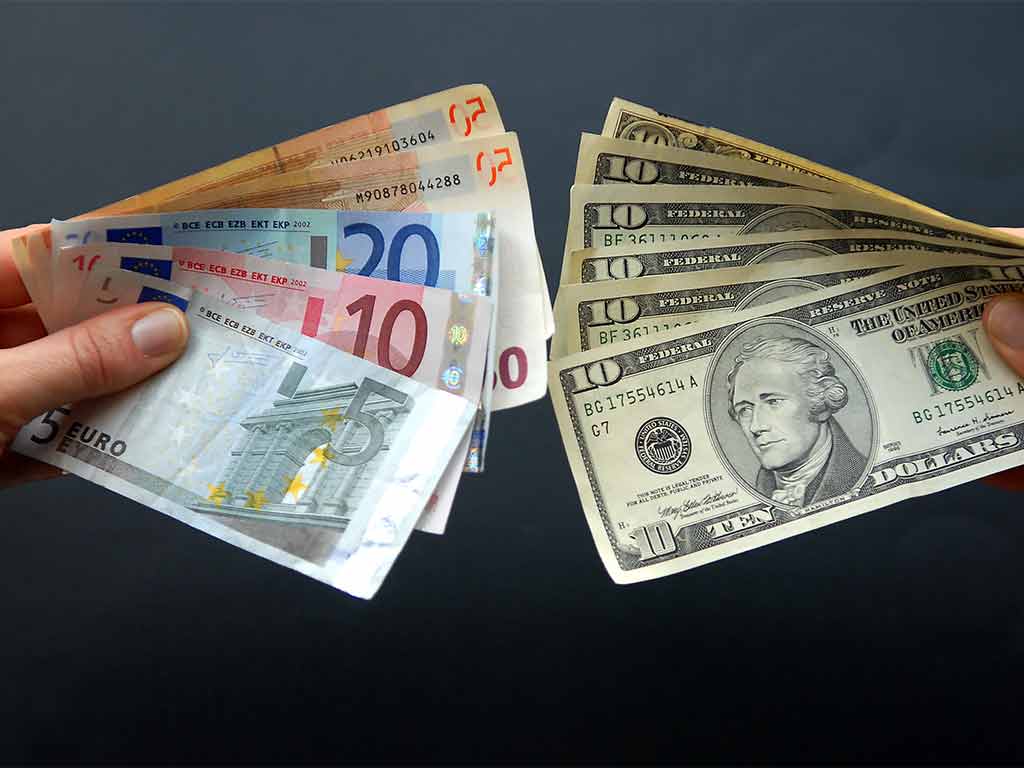Euro-Dollar Parity for the First Time in 2 Decades

For the first time in twenty years, the euro and the United States dollar are trading at parity. This comes as Russia threatens to shut off gas supplies to the west and inflation rates increase, stoking worries of a European economic slowdown.
For the first time in twenty years, the euro and the United States dollar are trading at parity. This comes as Russia threatens to shut off gas supplies to the west and inflation rates increase, stoking worries of a European economic slowdown.
The value of the euro reached a new all-time high in comparison to the dollar. After a period of 20 years, the euro and the dollar have once again reached parity.
KEY FACTS
Tuesday morning found the euro trading at a low of approximately $1.00005, but it has since inched its way back up to $1.0061.
According to Greg McBride, chief financial analyst for the New York-based financial company Bankrate, the effect on imports and exports will be relative. This will result in an increase in the cost of American goods sold in Europe while simultaneously making European goods sold in the United States more affordable, which will help to ease the impact of rising inflation.
According to Moody's Analytics chief economist Mark Zandi, who was quoted in USA Today on Tuesday, "going to Europe appears a lot cheaper to Americans compared to last summer," Zandi said that a stronger dollar may offset the expense of increased airfare by 10 to 20 percent.
Since a result of the two currencies being relatively equal in value, McBride believes that this might be a "headwind for international enterprises," as these businesses can now anticipate a bigger return when converting euros to dollars.
The London-based FTSE 100 was down 0.29 percent and the German DAX Performance Index was down 0.17 percent as of 10 a.m. ET on Tuesday. However, European equities have since rallied, with the FTSE gaining 0.18 percent and the DAX gaining 0.57 percent as of 2 p.m. ET on Tuesday.
KEY BACKGROUND
As Russia's war in Ukraine drags on and as Russia threatens to cut off gas supplies to Western Europe, the value of the euro has been steadily falling since May of last year, when it was worth $1.22. It has fallen precipitously over the past five months, from $1.13, due to the fact that Russia's war in Ukraine is still ongoing. The U.S. dollar index increased to 16 percent over the past year on Monday, despite inflation rates and a lower domestic buying power – a good sign for Americans spending time across the Atlantic, where the dollar holds more weight, but potentially an indicator of "major financial stress" for U.S. companies abroad, according to economists at Morgan Stanley. This is a good sign for Americans spending time across the Atlantic, where the dollar holds more weight. Inflation rates have skyrocketed around the globe, particularly in the United States and the eurozone, which both reached rates of over 8.6 percent last month - mostly on the back of rising oil prices (41.9 percent annual increase in Europe and 34.6 percent in the U.S.). The European Central Bank's response was to call for an increase in interest rates of 25 basis points in order to combat rising prices. This is a slower rate of increase than the rate at which the Federal Reserve in the United States is increasing interest rates, which is 75 basis points, and it comes as the European Central Bank strives to achieve its target of inflation of 2 percent over the medium term. The European Central Bank has not raised interest rates on loans since they did so in 2011.
TANGENT
The Nord Stream 1 pipeline, which delivers gas from Russia to Germany via the Baltic Sea, was shut down by Russia on Monday for normal maintenance, which sparked suspicions that Russia may purposely extend the 10-day stoppage in retribution for western sanctions. It's possible that this may send energy prices over the roof in Europe. Robert Habeck, the Minister of the German Economy, issued a warning to economists about the potential for industry shutdowns and job losses in Germany one month ago in the event that Germany's energy supplies continue to diminish.
WHAT TO KEEP AN EYE OUT FOR
Whether or not the euro will go below the dollar, which hasn't happened since 2002, when the Euro plummeted to $0.99, only three years after the currency was formed. This is something that hasn't happened since 2002.

